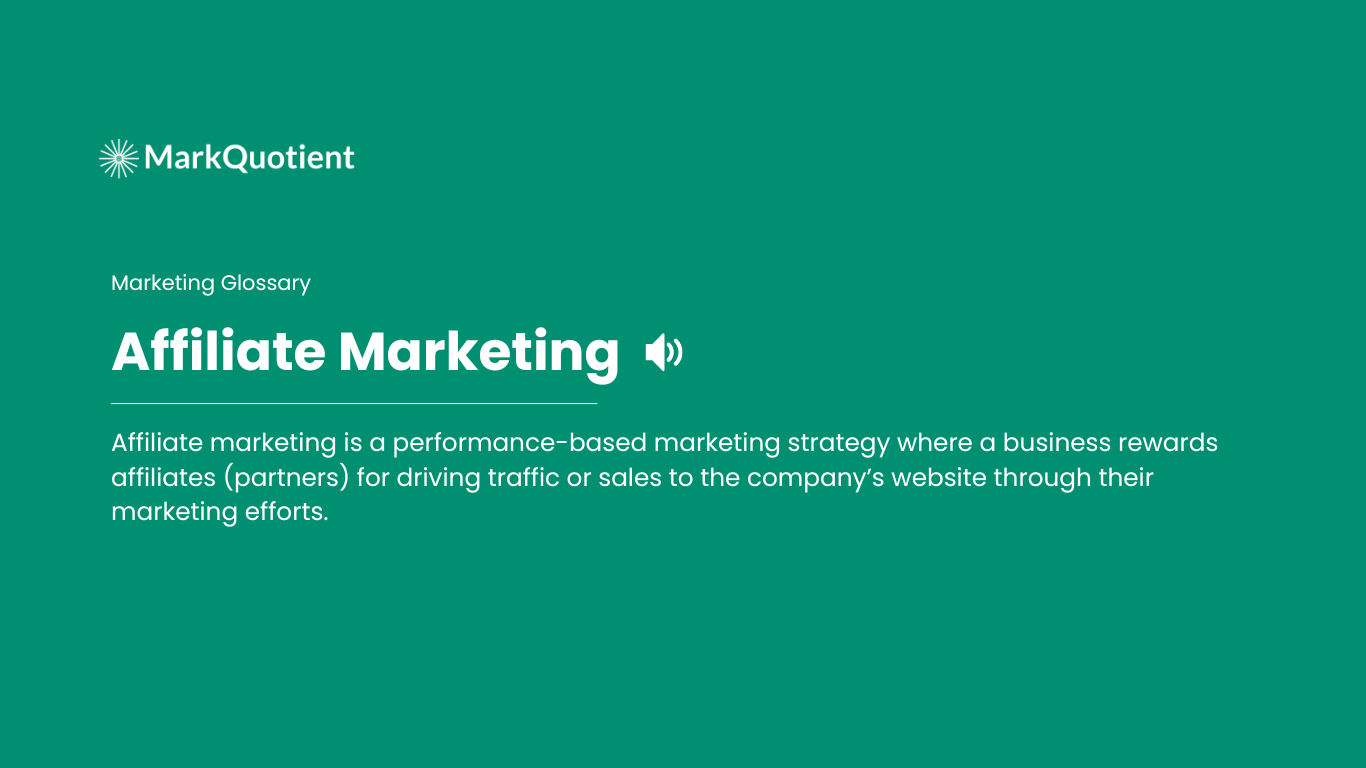Affiliate marketing is one of the most effective ways for businesses to expand their reach, boost sales, and enhance brand awareness by partnering with individuals or companies who promote their products or services. This strategy leverages the power of collaboration, allowing businesses to tap into new audiences without upfront advertising costs.
What is Affiliate Marketing?
Affiliate marketing is a performance-based marketing strategy where a business rewards affiliates (partners) for driving traffic or sales to the company’s website through their marketing efforts.
These affiliates can be bloggers, influencers, or other businesses that promote the company’s products through various channels such as websites, social media, or email campaigns.
Affiliates earn a commission for each sale or lead generated through their referral link, making it a win-win situation for both parties. The business only pays for results, while affiliates have the opportunity to earn income by promoting products they believe in.
How Does Affiliate Marketing Work?
The process of affiliate marketing typically involves the following steps:
- Affiliate Joins the Program: The affiliate signs up for the company’s affiliate program, receiving a unique referral link or code to track their marketing efforts.
- Promotion of Products: The affiliate promotes the company’s products or services through various channels like blog posts, social media, or email newsletters. They integrate the referral link into their content, guiding potential customers to the company’s website.
- Customer Clicks and Purchases: When a potential customer clicks on the referral link, they are redirected to the company’s website. If the customer makes a purchase or completes a desired action (like filling out a form), the affiliate’s link tracks this conversion.
- Affiliate Earns Commission: The affiliate earns a commission based on the agreed-upon terms, which could be a percentage of the sale, a flat fee, or another reward structure. This commission is paid out periodically, depending on the affiliate program’s terms.
Benefits of Affiliate Marketing
Affiliate marketing offers numerous advantages for businesses and affiliates alike:
- Cost-Effective: Businesses only pay for actual results, such as sales or leads, making affiliate marketing a cost-effective strategy compared to traditional advertising methods.
- Scalability: With an army of affiliates promoting products, businesses can scale their marketing efforts quickly without the need for a large in-house team.
- Enhanced Reach: Affiliates often have established audiences that businesses can tap into, reaching new customer segments that may have been otherwise inaccessible.
- Increased Credibility: When trusted affiliates promote a product, their endorsement adds credibility, making potential customers more likely to make a purchase.
- Performance-Based: Since affiliates are compensated based on performance, they are motivated to optimize their efforts to drive more sales, leading to better results for the business.
Why is Affiliate Marketing Important?
In the digital age, where consumers are bombarded with ads and marketing messages, affiliate marketing stands out as a more authentic way to reach customers. Affiliates often create content that is valuable and relevant to their audience, making their promotions feel more like a recommendation than a sales pitch.
Moreover, affiliate marketing helps businesses build long-term relationships with partners who are invested in the success of their brand. This collaborative approach not only drives sales but also builds a network of advocates who can continue to promote the brand long after the initial campaign.
Conclusion
Affiliate marketing is a powerful strategy that combines the reach of partnerships with the efficiency of performance-based advertising. By leveraging affiliates, businesses can expand their reach, boost sales, and enhance their brand’s credibility—all while keeping marketing costs in check. As more companies recognize the value of this approach, affiliate marketing is set to continue growing as a key component of modern marketing strategies.

